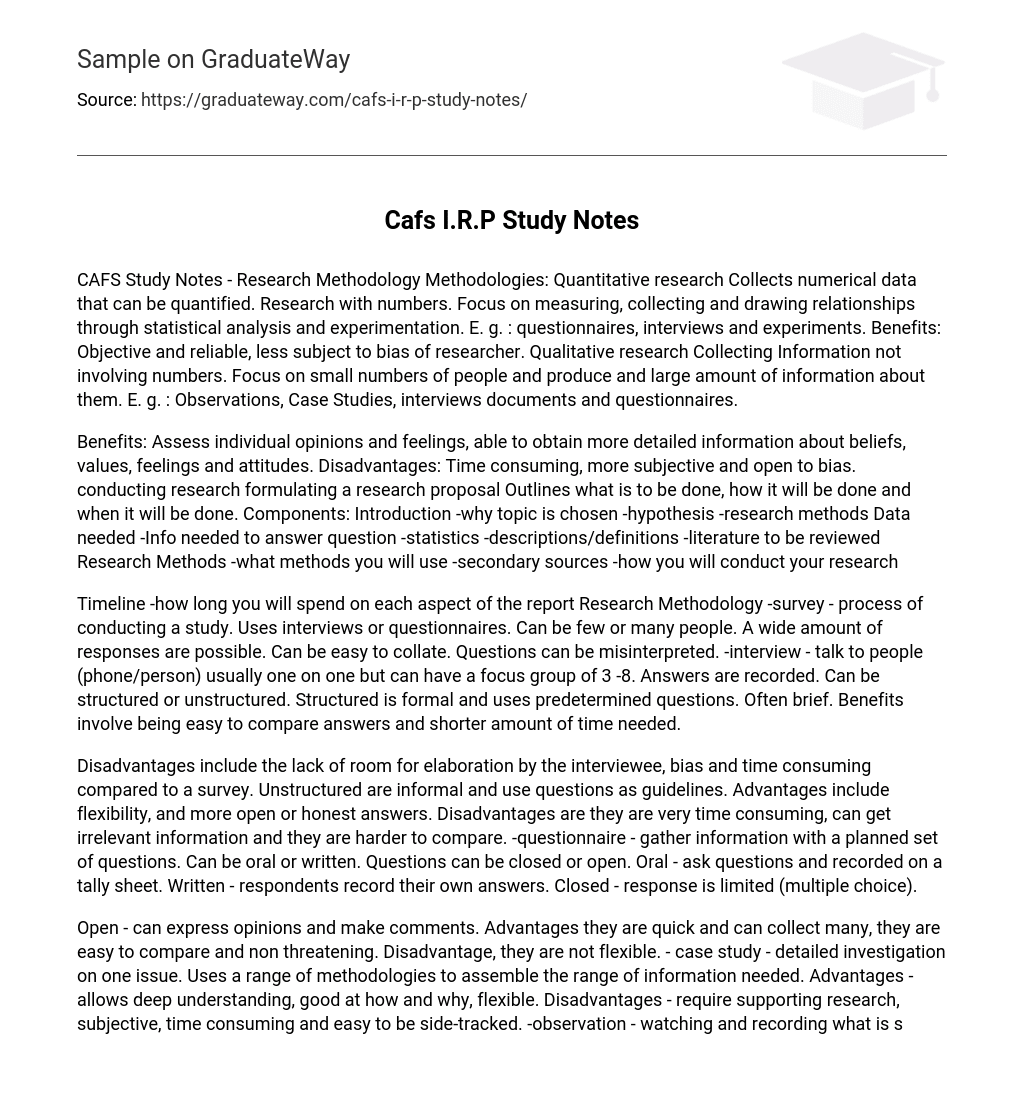The researcher must asses their value by checking sources qualifications and experience and comparing with other sources. research terminology bias Research is always influenced by personal values. The researcher must remain as objective as possible. It occurs when factors unduly influence and therefore distort the outcome of results. Researcher must not have predetermined views and must interpret the results as they appear not as the want them to be. hypothesis/question A research problem. Positive statement of what the researcher wants to find out or idea they want to test.
A method that if used by other researchers will lead to the same or similar results. To achieve this the researcher must be organised. when achieved an accurate representation of the population is given. validity How well research measures what it is meant to measure. Increased when a variety of methods is used. Dependant of factual data, data reliability and accurate data interpretation. The research must have background knowledge to make informed generalisations and assumptions rather than relying on value judgements or biased views. sampling Selecting the representative range of people for the study.
Usually random sampling gives the best results (selecting a sample so that all member of a group have equal chance of selection). The larger the sample the better. It also applies to selecting a representative range of sites and times for observations and interviews. relationship between sampling and reliable research outcomes If the sample taken is not appropriate to the study the outcomes will not be reliable. Effective and fair samples result in reliable results. Eg is all the people in your sample do not drink alcohol you survey or alcohol consumption will not give accurate results of the population.
Other sampling methods Stratified -research candidates are divided into groups then candidates are selected from each group. Cluster -candidates are divided into groups and then specific groups are selected. ethics in research privacy The subject has a right to confidentiality. Raw data and names should not be presented.
Permission should be requested when carrying out primary research. Data should be stored and disposed of safely. respect for the subjects of research Subjects have rights as individuals, they must give voluntary consent. They have the right to withdraw. There should be no physical or mental risk to heir well-being. Questions should be worded careful so as not to upset, offend or be too personal.





